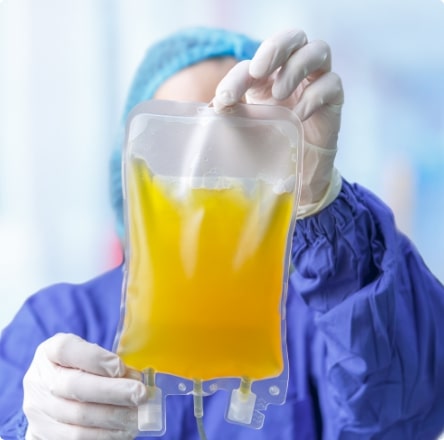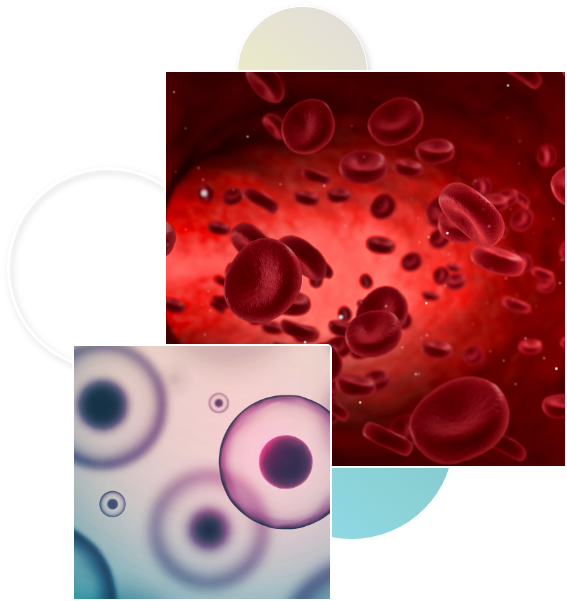What Is Plasma?
Plasma Source » What Is Plasma?

Plasma is a gold-colored liquid that makes up about 55% of your blood.
It is essential for maintaining proper body function and facilitates the movement of hormones, nutrients, enzymes, proteins, and other important nutrients to the parts of your body that need it most. It also helps the lungs during the exchange of oxygen and carbon dioxide.
What Does Plasma Do?
Plasma does so many important things for your body, like
- Redistributing water where your body needs it
- Supporting blood vessels from collapsing or clogging
- Maintaining blood pressure and circulation
- Regulating body temperature
- Removing waste from cells
- Helping clot blood
- Defending against bacterial, viral, fungal, and parasitic infections

What is Whole Blood Collection?
Donating blood is called a whole blood collection because you are donating all four components of your blood. Whole blood collections help save the lives of children and adults fighting to survive cancer, blood disorders, traumatic injuries, and more.
This type of donation can be transfused in its original form, or separated into its components and used to help save the lives of patients with specific disorders, diseases, or injuries.
What is Plasma Collection?
When you donate plasma, we collect a portion of your blood using a process called plasmapheresis. During this process, plasma is collected and your red and white cells and platelets are safely returned to you.
What Is Plasma Donation?
A plasma donation is a type of blood donation that allows you to donate a specific part of your blood and help certain types of patients.
But, before we explain the difference between a whole blood and plasma donation, it’s important to understand each component of your blood—and how they keep you healthy
- Red blood cells
They also bring carbon dioxide back to your lungs. Red blood cells make up almost half of your blood and regenerate about every 120 days. - White blood cells
These cells are part of your body’s immune system and help fight infection and other diseases. They have three protective functions: ingesting foreign materials and cellular debris, destroying infections agents and cancer cells, and producing antibodies. - Platelets
Platelets are tiny, disc-shaped cells that help prevent and stop bleeding. If a blood vessel is damaged the body sends signals to platelets, causing them to travel to the injured area, clump together, and form a clot to help stop the bleeding. - Plasma
Plasma is essential for your body to function and serves as the liquid holds your red and white blood cells and platelets together. It also carries nutrients, hormones, and proteins to the parts of your body that need it most. It also helps your body maintain healthy blood pressure, volume, and pH balance.

How Does Donating Plasma Work?
Plasma is donated through a process called plasmapheresis.
Plasmapheresis is a safe and medically monitored process that separates and collects the plasma from your blood. While it may sound intense, it’s like donating blood and only requires a brief needle stick.
Instead of donating all blood components, the unused components are returned to your body with a sterile saline solution, so you can begin replacing what you’ve donated.
What Does Donating Plasma Do?
Your plasma donation helps change lives. For many, plasma-derived biotherapies are the only way to effectively treat their condition or disease.
The proteins, antibodies, clotting factors, and other nutrients in plasma and platelet donations help doctors provide life-saving treatment for those suffering from trauma, shock, burns, and other emergencies.
Plasma is also used to treat rare and inherited chronic conditions, like immune deficiencies, autoimmune disorders, and hemophilia (the inability of blood to clot).
That’s why your donations are vital—and it’s also the reason you get financially compensated to donate plasma.

Ready to Get Started?
Are you interested in becoming a plasma and platelet donor? Contact our our plasma donation center in Aurora, IL to schedule an appointment today.
